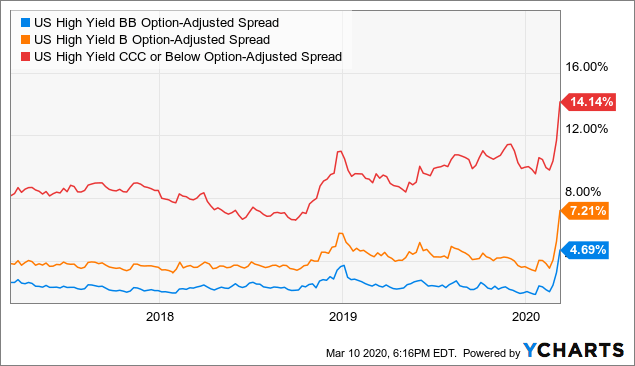
A cash dividend, or payment from a company to shareholders, is a cash payment. The board of directors announces the dividend on the declaration date. Its goal is to pay a specific amount to every common share. It also sets a Record Day for the company to determine who can receive the cash dividend. A cash dividend is usually paid quarterly. The company will typically make an announcement every quarter. A cash dividend can be considered a type or dividend and has tax implications.
Common types and cash dividends
Companies pay stock dividends along with regular dividends. Some companies offer their shareholders additional shares or stock in exchange for a cash dividend. Dividend yields reflect the market sentiment. Experts pay close attention and track trends and patterns when it comes to cash dividends. Companies must pay taxes on dividends they receive from shareholders before they can distribute them. The taxes paid by companies are often higher than the cash dividend. This limits the amount that they can distribute to shareholders.
The most common way to compare cash dividends from different companies is by calculating the trailing 12-month dividend yield. This figure is calculated by dividing dividends per share over the most recent twelve-month period by the current stock price. This yield is a key metric for comparing cash dividends between companies. Another common type of dividend is a special dividend. Special dividends are paid when the company receives a windfall in earnings, a spinoff or takes other actions that resulted in higher than average dividends.

Cash dividends have an impact on the perception of risk by investors
Though most investors know the concept behind a cash dividend, many don't realize how they can affect a company’s tax liability or risk profile. This is because cash dividends refer to the transfer of a portion of an equity company's profits to shareholders instead of reinvested in the business. Dividend yield is expressed as a percentage on the share price. It describes the cash that a company pays each year to its shareholders. Union Pacific Corp. is an example of this. This represents a dividend return of 2.55% for $150.
How a company makes decisions is what will have an impact on the risk perception of investors. Tax consequences for shareholders should determine whether a firm pays a dividend. In some cases, firms' decision-makers might be well aware of the risk/reward tradeoffs between paying dividends to external finance. Numerous studies have shown that both factors are interrelated. Hoberg-Prabhala, for example, found that companies with high levels of perceived risk decrease their dividends when they increase their payout.
For cash dividends, you will need to enter your journal
The journal entry required to cash dividends varies according to the type of dividend. Some companies credit Dividends payable and deduct the cash payout from Retained Earnings. A separate account is also used by some firms for Dividends Declared. The date of the declaration determines the recipients. The actual cash outflow is not realized until the date of payment. Before you begin recording dividends, it is crucial to know when the cash outflow occurred.
Cash dividends are temporary accounts that will be converted to retained earnings at year's end. Some companies may deduct retained earnings at the time of dividend declaration to avoid having to keep a general ledger. In this instance, the account the dividend was paid to should be the journal. Make the relevant journal entries for cash dividends.

Cash dividends can have tax consequences
You need to be aware of the tax implications that cash dividends can have on your income. Stock dividends are exempt from tax, but cash dividends can be. Make sure to read all terms and conditions before accepting any stock dividend. Utility companies may be exempted from tax on interest they earn on bonds. Cash dividends have variable tax consequences, and are dependent on the stock’s taxable income. Common shares can also be subject to a variable Schedule and the board may decide to suspend distributions or reduce dividends.
The company's goal is to generate profits and give those earnings to shareholders. If the dividend qualifies as taxable it will be subject to capital gain tax. This lowers the shareholder’s stock basis. Additionally, any liabilities the shareholder assumed while holding the stock reduce the distribution. The tax consequences of cash dividends reflect this reduction in stock price. Furthermore, a stock dividend can be considered a special cash payout.
FAQ
What is security in the stock exchange?
Security can be described as an asset that generates income. Most security comes in the form of shares in companies.
A company could issue bonds, preferred stocks or common stocks.
The earnings per share (EPS), as well as the dividends that the company pays, determine the share's value.
A share is a piece of the business that you own and you have a claim to future profits. You will receive money from the business if it pays dividends.
You can sell shares at any moment.
What is a Stock Exchange?
Stock exchanges are where companies can sell shares of their company. This allows investors to purchase shares in the company. The market decides the share price. The market usually determines the price of the share based on what people will pay for it.
Companies can also get money from investors via the stock exchange. Investors give money to help companies grow. Investors buy shares in companies. Companies use their funds to fund projects and expand their business.
There are many kinds of shares that can be traded on a stock exchange. Others are known as ordinary shares. These are the most commonly traded shares. Ordinary shares can be traded on the open markets. Prices of shares are determined based on supply and demande.
Preferred shares and debt securities are other types of shares. Priority is given to preferred shares over other shares when dividends have been paid. The bonds issued by the company are called debt securities and must be repaid.
What is a fund mutual?
Mutual funds can be described as pools of money that invest in securities. Mutual funds offer diversification and allow for all types investments to be represented. This reduces risk.
Managers who oversee mutual funds' investment decisions are professionals. Some funds let investors manage their portfolios.
Mutual funds are more popular than individual stocks, as they are simpler to understand and have lower risk.
What role does the Securities and Exchange Commission play?
Securities exchanges, broker-dealers and investment companies are all regulated by the SEC. It also enforces federal securities laws.
Statistics
- Our focus on Main Street investors reflects the fact that American households own $38 trillion worth of equities, more than 59 percent of the U.S. equity market either directly or indirectly through mutual funds, retirement accounts, and other investments. (sec.gov)
- Even if you find talent for trading stocks, allocating more than 10% of your portfolio to an individual stock can expose your savings to too much volatility. (nerdwallet.com)
- Individuals with very limited financial experience are either terrified by horror stories of average investors losing 50% of their portfolio value or are beguiled by "hot tips" that bear the promise of huge rewards but seldom pay off. (investopedia.com)
- Ratchet down that 10% if you don't yet have a healthy emergency fund and 10% to 15% of your income funneled into a retirement savings account. (nerdwallet.com)
External Links
How To
How can I invest into bonds?
An investment fund is called a bond. They pay you back at regular intervals, despite the low interest rates. These interest rates can be repaid at regular intervals, which means you will make more money.
There are many options for investing in bonds.
-
Directly buying individual bonds
-
Buy shares of a bond funds
-
Investing through a bank or broker.
-
Investing via a financial institution
-
Investing in a pension.
-
Invest directly through a broker.
-
Investing through a mutual fund.
-
Investing with a unit trust
-
Investing in a policy of life insurance
-
Private equity funds are a great way to invest.
-
Investing with an index-linked mutual fund
-
Investing through a Hedge Fund